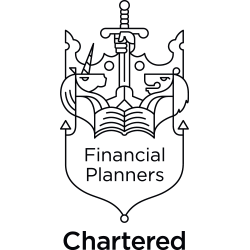Your guide to budgeting basics
Furlough, job losses, and business closures have seen many households struggling financially since the outbreak of the pandemic and millions continue to feel financial pressure, even as the economy recovers.
However the pandemic has impacted your household finances, the uncertainty it has created might have made you think more carefully about budgeting and your monthly income and outgoings.
If you’ve found budgeting tricky over the last 18 months, we’re here to help. Keep reading for 3 powerful lessons to help you budget more effectively.
1. The importance of an emergency fund
The pandemic made clear how quickly the unexpected can strike and the need for financial resilience when it does.
Job losses and business closures have highlighted the importance of having an emergency fund.
A rainy day fund should ideally cover between three and six months of household expenses, giving you a safety net if an accident, illness, or a sudden job loss occurs.
It’s best to keep an emergency fund in cash so that it is easily accessible when you need it. It can help to cover regular outgoings like your bills and mortgage or help toward unexpected expenses without the need to accrue debt.
Knowing that you have this safety net in place will give you peace of mind that you and your loved ones will be looked after whatever the future brings.
2. Pay your future self first
Paying your future self first means focusing on your long-term goals and starting to save toward your future as early as you can.
When you receive your monthly income, put savings aside straight away and then start to budget with the remainder. You will find this is much more effective than waiting until the end of the month before thinking about saving.
The money you put aside could go towards a pension, enhancing your savings, or an investment portfolio aligned to your attitude to risk.
You’ll find that putting aside a regular amount each month will quickly become a habit. And doing so on payday means that you won’t even have the chance to miss the extra money!
3. How to budget: The 50/30/20 rule
To be able to budget effectively you’ll need a firm grasp on your household’s income and outgoings. Whether you use cashflow modelling tools or apps, or a simple spreadsheet, understanding where your money is coming from – and where it is going – is a great place to start.
It might allow you to identify places where you can cut back and also make clear the amount of disposable cash you have.
Once you have a clear idea grasp of the figures, consider using the 50/30/20 budgeting technique. Under this system, you’ll break your household incomings into three categories and allocate each one a percentage:
50% will go on household needs
Half of your household monthly income should be put aside to cover “needs”. These are your rent or mortgage payments, food, and energy bills.
If you are currently paying out more than this for the essentials, look for ways to cut back. Could planning the weekly food shop help you reduce how much it costs? Are you paying over the odds for utilities, and might you be better off switching providers?
30% of your household income can go on wants
“Wants” include all non-essentials such as holidays, trips to the cinema, and restaurant meals, and any subscription entertainment services you’re signed up to.
If you’re currently paying over 30% on non-essentials, this could be an easy area in which to make savings. Do you have subscription services you don’t use? Could you cut down on meals out?
20% will be put aside for the future via savings or investments
Once you’ve covered both your monthly essentials and non-essentials – and successfully managed the amounts for each – putting the remaining 20% towards savings should be easy.
You might use the 20% to build an emergency fund if you don’t have one in place or to pay off high-interest debt.
Putting money into an Individual Savings Account (ISA) or a pension means you’ll be starting to pay your future self, and this could make a huge difference in later life.
Get in touch
If you would like help budgeting with your household income or you’d like to discuss your long-term financial plans and your goals for retirement, get in touch. Please email us at info@logicfinancialservices.co.uk or check with your adviser.
Please note
The value of your investments (and any income from them) can go down as well as up and you may not get back the full amount you invested. Past performance is not a reliable indicator of future performance. Investments should be considered over the longer term and should fit in with your overall attitude to risk and financial circumstances.

